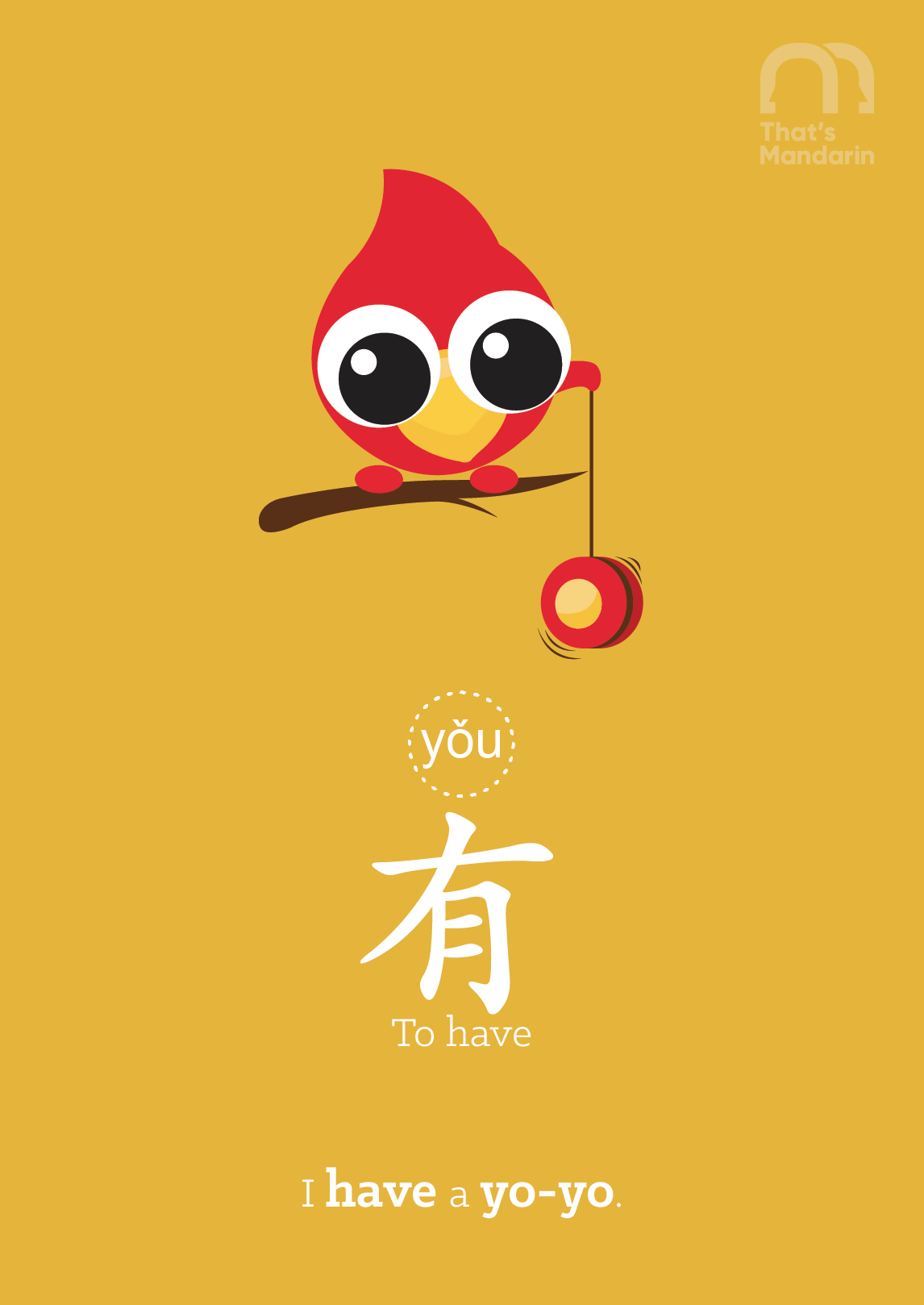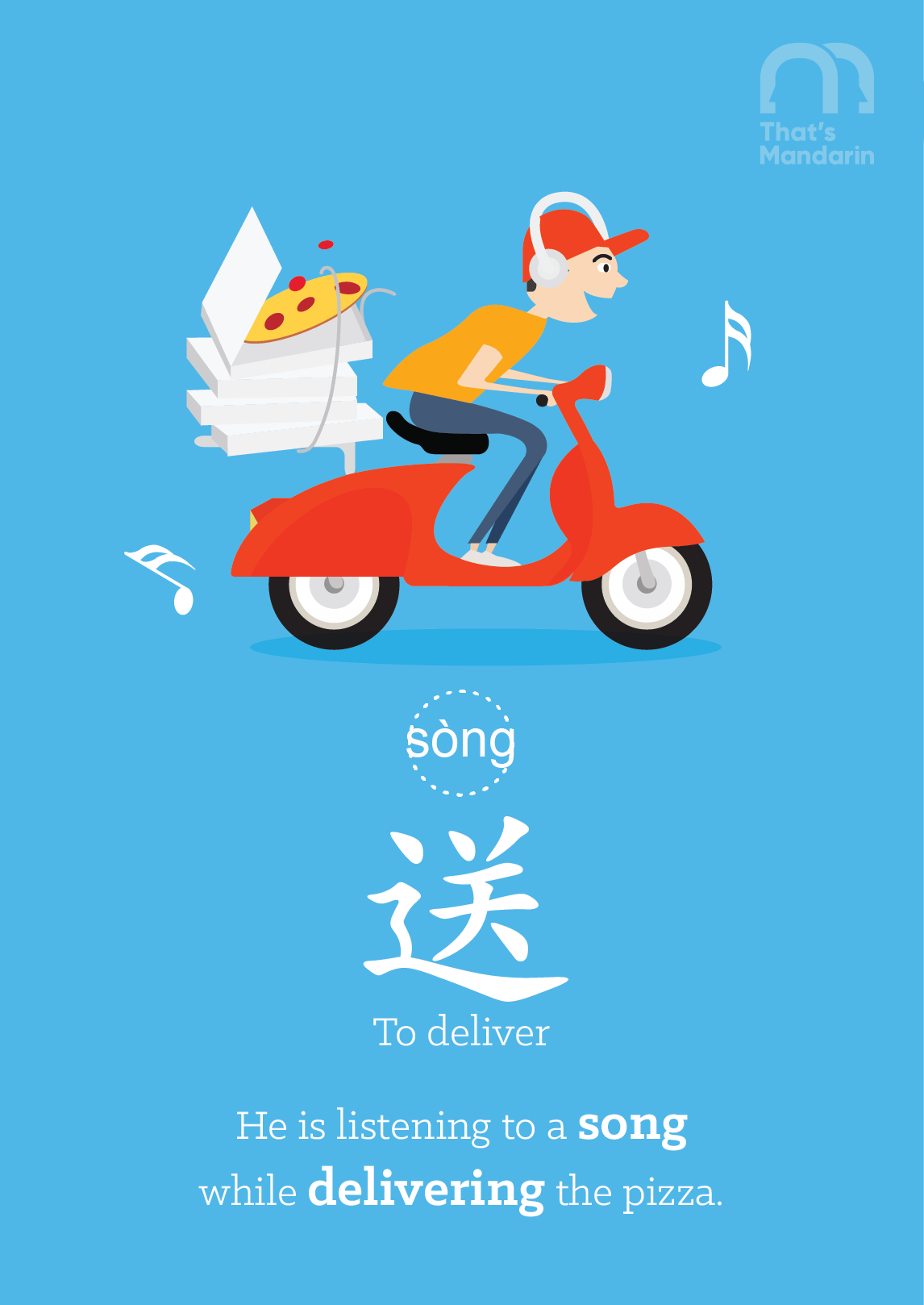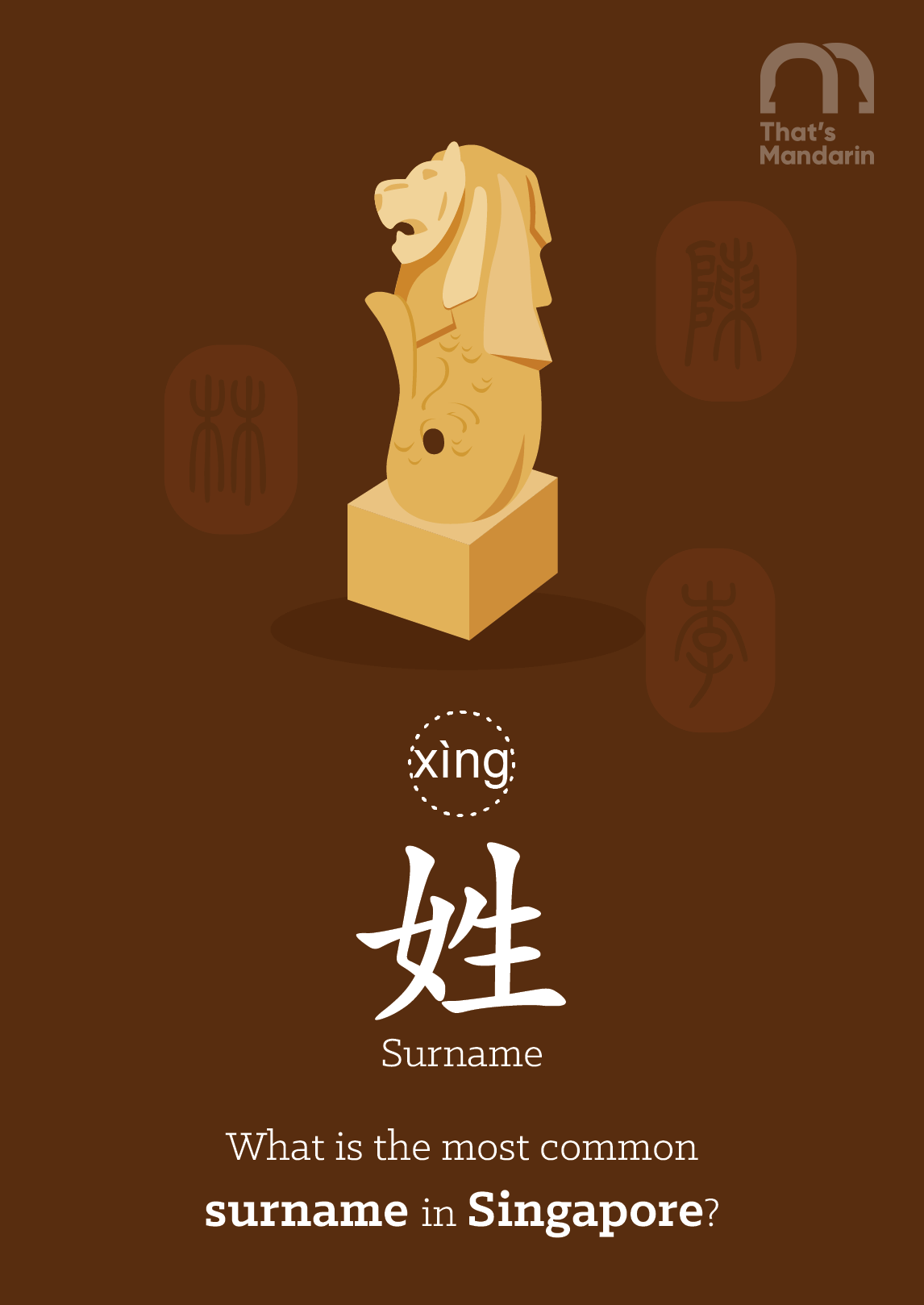Chinese Link Words: Learn 4 Basic Chinese Verbs
To have | 有 (yǒu)
有 (yǒu) means “to have” and sounds exactly like the “yo” in “yo-yo”. So the sentence “I have a yo-yo” can definitely help you remember this word.
Can you make a sentence “I have a mobile” by yourself?
Yes, that would be:
我有手机。
Wǒ yǒu shǒujī.
or
我有一个手机。
Wǒ yǒu yī gè shǒujī.
Don’t | 没 (méi)
In Chinese, it is 没 (méi) which sounds like the English word “May”.
So the sentence of the picture “I DON’T HAVE holidays in MAY” can help you remember this word.
We can also put 没 (méi) and 有 (yǒu) together to get the word 没有 (méiyǒu). It still means “Don’t have”, the same as 没 (méi).
To deliver | 送 (sòng)
The Chinese word “to deliver” something is 送 (sòng), which sounds incredibly like the English word “song”.
This picture can help you to remember this word: He is listening to a song while delivering a pizza. You can also deliver a song to someone if they need to be entertained 🙂
Now you will know how to ask if there is delivery service in the restaurant. The sentence will be:
你们能不能送外卖?
Nǐmen néngbunéng song wàimài?
To be called (by last name) | 姓 (xìng)
姓 (xìng) means “surname” or “surname is” in English, and it can be used as a verb “to be called”:
他姓什么?
Tā xìng shénme?
What is his last name?
姓 (xìng) sounds like the first syllable “sing” of the country “Singapore”.
Chinese people think that it is impolite to call other’s name directly in a formal occasion. They prefer using “[Surname] + 先生 (xiānsheng)” or ”[Surname] + 女士 (nǚshì)” instead, which means “Mr. + [surname]” or ”Miss + [surname]”.
To have | 有 (yǒu)
有 (yǒu) means “to have” and sounds exactly like the “yo” in “yo-yo”. So the sentence “I have a yo-yo” can definitely help you remember this word.
Can you make a sentence “I have a mobile” by yourself? Yes, that would be:
我有手机
Wǒ yǒu shǒujī
or
我有一个手机
Wǒ yǒu yī gè shǒujī.
Not to (have) | 没 (méi)
In Chinese, it is 没 (méi) which sounds like the English word “May”. So the sentence of the picture “I DON’T HAVE holidays in MAY” can help you remember this word.
We can also put 没 (méi) and 有 (yǒu) together to get the word 没有 (méiyǒu).
It still means “Don’t have”, the same as 没 (méi).
To deliver | 送 (sòng)
The Chinese word “to deliver” something is 送 (sòng), which sounds incredibly like the English word “song”.
This picture can help you to remember this word: He is listening to a song while delivering a pizza. You can also deliver a song to someone if they need to be entertained 🙂
Now you will know how to ask if there is delivery service in the restaurant. The sentence will be:
你们能不能送外卖?
Nǐmen néngbunéng song wàimài?
To be called by last name | 姓 (xìng)
姓 (xìng) means “surname” or “surname is” in English.
姓 (xìng) sounds like the first syllable “sing” of the country “Singapore”.
Chinese people think that it is impolite to call other’s name directly in a formal occasion. They prefer using “[Surname] + 先生 (xiānsheng)” or ”[Surname] + 女士 (nǚshì)” instead, which means “Mr. + [surname]” or ”Miss + [surname]”.

Study Chinese
with us
Learn More About Our Programs
Study Chinese with us
Learn More About Our Programs








